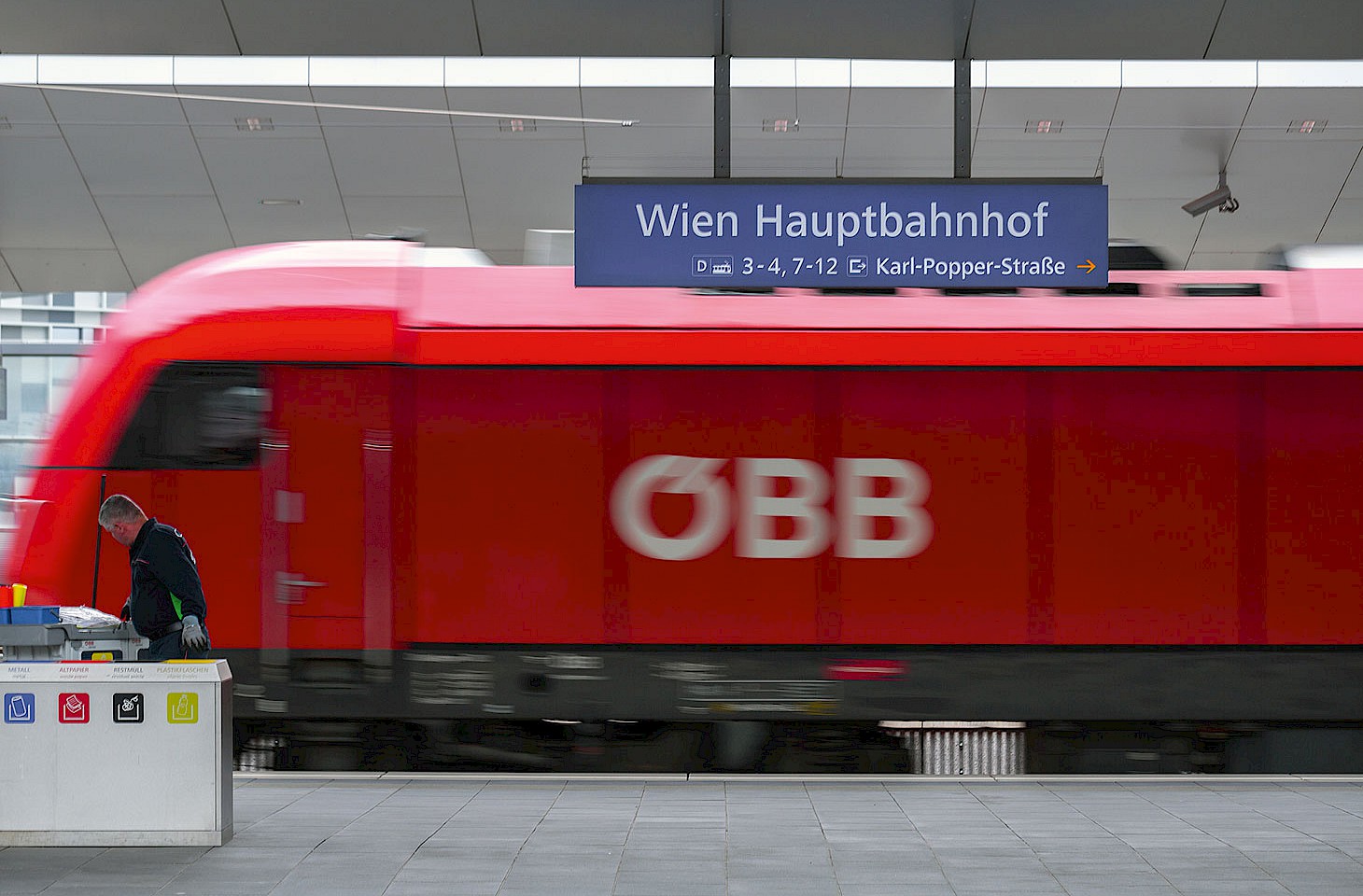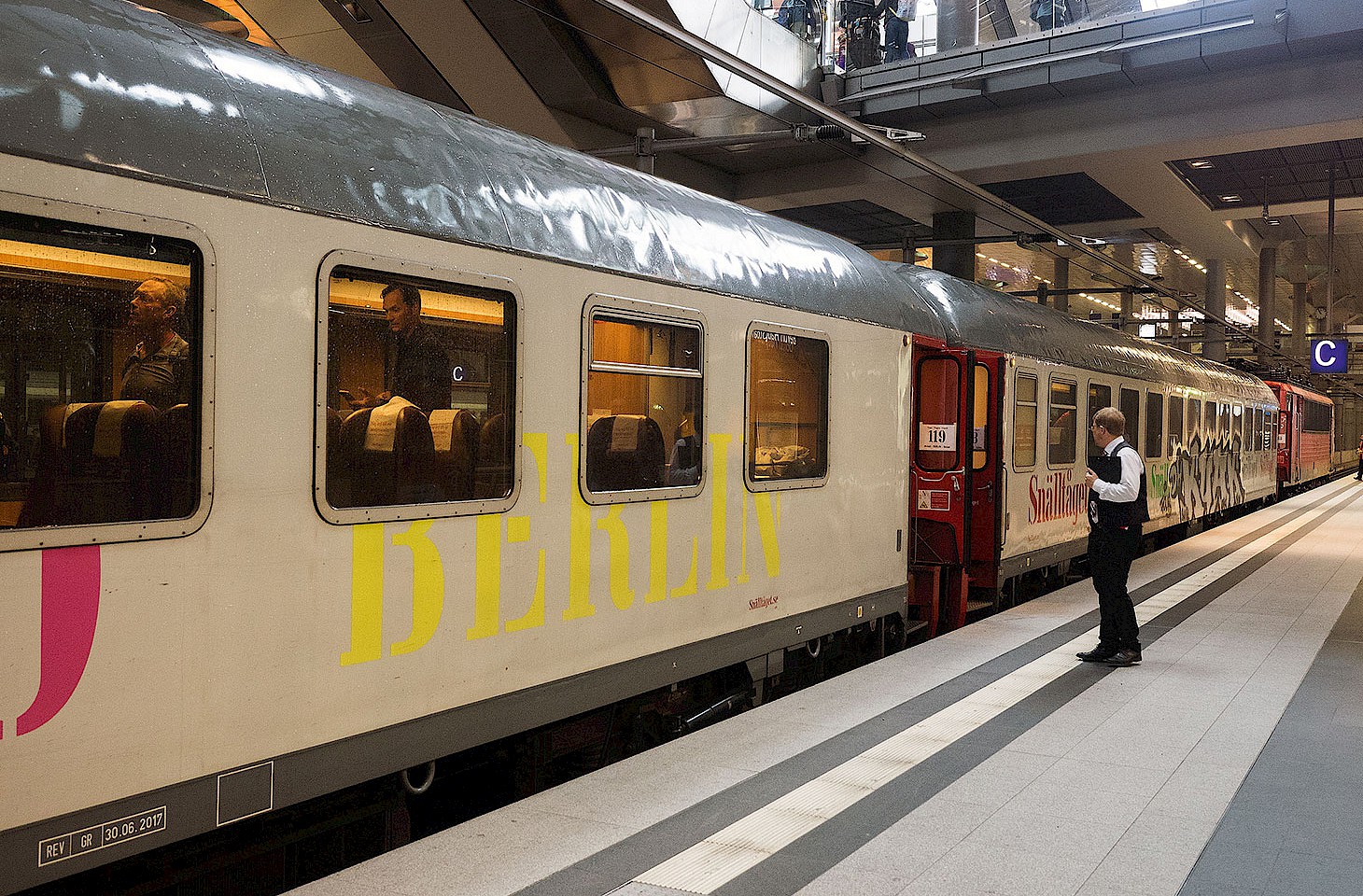Dear fellow travellers
There is much ado in Luxembourg - a country which is getting some good press these days as it gears up to introduce free public transport.
We have a friend who lives in the Moselle Valley near Trier. Maria commutes four or five days each week to her office in Luxembourg. Every working day, almost 200,000 people travel into the Grand Duchy for work. Border-hopping commuters like Maria account for almost half of the country's entire workforce. They come each morning from Belgium, France and Germany, returning home in the evening.
The appeal of working in Luxembourg is especially strong in areas of French Lorraine where there is a legacy of industrial decline and high unemployment. From Thionville in France, it's just 25 minutes on a fast train to Luxembourg City, where a booming financial services sector offers higher salaries than most employers in Thionville.
Maria tells us that she pays €85 each month for her season ticket on the train from Trier in Germany to Luxembourg - a round-trip of 100 kilometres that takes about 50 minutes in each direction. This is an extraordinarily good deal, and it's about to become even better.
From the start of next month, Maria's monthly season ticket will cost just €49. This is the result of the largesse of the government and tax payers of the Grand Duchy, for from 1 March all public transport in all of Luxembourg becomes free of charge - not merely for residents but also for cross-border commuters and visitors. That means big drops in the price of train fares from places outside Luxembourg but close to the frontier. Effectively, Maria will in future only need to pay for her journey from Trier up to the border with Luxembourg.
Free rides for all
Luxembourg's bold move in abolishing fares for all public transport (bar for first-class journeys on trains) has thrust the Grand Duchy into the spotlight. And rightly so, as it's a revolution in transport policy; the first time, we think, that an entire country has offered free public transport.
It has to be said that public transport in Luxembourg has always been extraordinarily cheap. In a country which is otherwise quite pricey, it's brilliant that you can make a two-hour journey from one end of the Grand Duchy to the other for just two euros. The one-day rover ticket, affording unlimited travel for a day on the country's trains, buses and trams, currently costs just four euros.
That public transport is so cheap comes as a surprise to many visitors, who may well regret having purchased tickets in advance for their journeys around Luxembourg. Online ticket retailers like Trainline and Omio charge €32 return for the popular excursion from Luxembourg to Clervaux. Buy the ticket in Luxembourg and you'll pay just €4. Or get it for free from 1 March!
The new travel-for-free scheme has its critics. Some border communities worry that commuters will drive over the frontier into Luxembourg and leave their cars around railway stations where they can board a train for a free ride into Luxembourg City. Will small villages find their streets taken over for daytime parking by those commuters?
Changing attitudes
But many are enthused by the possibilities introduced by Luxembourg's initiative. We have seen how ride-for-free schemes in other parts of Europe, generally limited to clearly identified cohorts, have been transformative. In Hungary and Slovakia, citizens of European Union countries who have reached retirement age can ride on many train services for free. In Ireland, there is entirely free travel for those aged 66 or over, but there the scheme is limited to permanent residents (of any nationality). Britain offers free bus travel for seniors, but again it's an entitlement strictly limited to residents.
We've seen the transformative potential of the senior bus pass in Britain. Travellers who have been wedded to their cars for their entire working lives suddenly realize that their home village or suburb has decent bus services. They start exploring. And, even if they don't go far, just possessing a bus pass communicates the possibility of travel. They know that they could on a whim hop on a bus and go and visit friends or relations - without having to pay a penny.
The option of free transport is potentially liberating - as anyone who has ever travelled with an Interrail pass will confirm. To give an entire country free transport is revolutionary - we can see that, apart from encouraging commuters to shift from their cars, it will slowly transform the attitudes of an entire population towards public transport. We shall be in Luxembourg next week to witness the introduction of free public transport on 1 March. And we shall follow with interest this great national experiment.
Nicky Gardner and Susanne Kries
(editors, hidden europe magazine)



